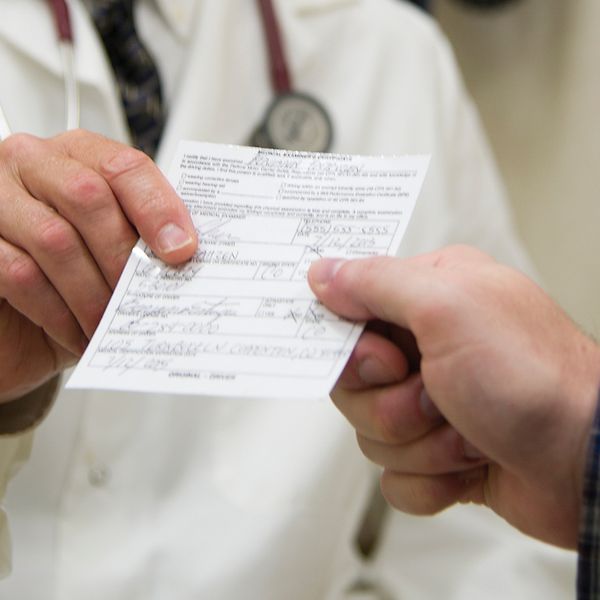A majority of DOT medical exam forms have errors
Almost 56 percent of commercial driver medical exams showed medical history errors by either drivers or certified medical examiners (CMEs), according to a recent study by the American Journal of Industrial Medicine.
This statistic should raise concerns for motor carriers, especially since any questionable certification decision made from bad information doesn't relieve them from potential liability for a crash.
Other study findings
The study was the first that reviewed DOT medical examination report (MER) forms, also known as long forms, for the quality of the health history documentation.
The review of 1603 examination forms from exams conducted by 367 CMEs in 2019 also found that:
- CMEs completed the MER incompletely or incorrectly in 30 percent of examinations,
- Drivers inconsistently filled out their health history with elaborations 38.7 percent of the time,
- Drivers failed to elaborate when a driver indicated “yes” on the health history indicating that they have or had the condition, in 28.7 percent of examinations,
- Both drivers and CMEs made errors in the same exam in 13.3 percent of cases.
Other types of errors were indicated as well.
Why is medical exam form accuracy so important?
Inaccurate or inadequate medical exam documentation may understate the risk of a medical condition or treatment and may negatively affect:
- Subsequent litigation,
- The quality of care and monitoring for current conditions, and
- Future medical certifications for the affected driver.
Accurate exam forms are also essential given these points:
- The average age of drivers in the trucking industry hovers around 50 years old and chronic medical conditions can worsen with age,
- The 2024 update of the Medical Advisory Board’s CME Handbook stressed that nearly all certification decisions are based on the driver’s circumstances and CME discretion,
- FMCSA can review exam results and disqualify drivers who should not have been certified, and
- Recent Federal Motor Carrier Safety Administration (FMCSA) data showed that 40 percent of medical certifications are issued for one year or less to monitor serious conditions that can lead to a crash, such as:
- Cardiovascular disease,
- High blood pressure,
- Diabetes, and
- Obstructive sleep apnea (OSA).
Three options for carriers
Carriers should consider ways to lower the risk of errors and omissions made during exams. Below are three options:
- Require drivers to use a preferred Certified Medical Examiner organization for exams instead of accepting a driver’s current medical certification at hire,
- Consider paying for or subsidizing the cost of new hire and recertification exams at a preferred provider, and
- Review long forms for irregularities only after obtaining driver consent and following applicable medical privacy laws.
The study, “Retrospective quality review of Department of Transportation (DOT) commercial drivers medical examination forms,” appeared in the December 2024 edition of the American Journal of Industrial Medicine.
Key to remember: Carriers are accountable for crashes caused by a medical condition, and they must reduce the risk posed by inaccurate medical exams.





















































